Graham Reid | | 4 min read
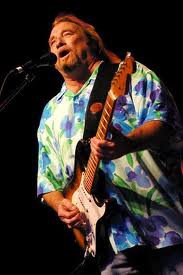
Call it Californication if you like, but there are a lot of 70s singer-songwriters from the sun-tanned state around right now: Joni Mitchell, Neil Young and the re-formed Eagles all have new albums out (Shine, Chrome Dreams II and Long Road Out of Eden respectively), and America -- the British-based masters of Cali-styled soft-rock who borrowed heavily from Young -- are touring soon.
So are the godfathers of the movement -- Crosby, Still & Nash.
In a career spanning almost four decades -- their second gig in 1969, with Neil Young, was at the first Woodstock -- CS&N have delivered folk-framed pop-rock high on vocal harmonies -- and equally high on disharmony within the band.
Their mostly off-again career started well enough -- their self-titled debut album and its follow-up Deja-Vu both stormed up the world charts -- but there had been constant internal bickering and within months Stephen Stills had departed for England to make a solo album. 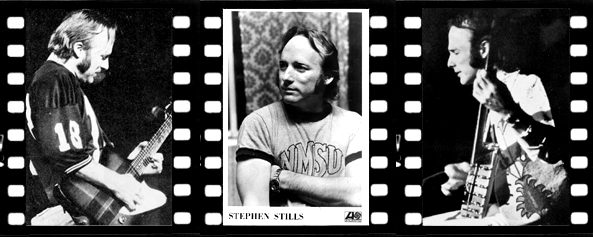
Solo albums by Graham Nash and David Crosby followed, CS&N re-formed infrequently in the following decades (sometimes with Young), and they would work in various configurations -- although tellingly Stills never recorded an album with just Crosby.
A hallmark of the CS&N story was arguments, often about petty things.
Today, once again, CS&N -- the band that created the template for the Eagles, America, Poco, Bread and a dozen other soft-rock chart-toppers in the 70s -- are back on the road, although as Crosby told the Herald earlier this year, while he respects Stills and can work with him, they see the world differently.
But they are older now however as Stills concedes: “We have fun with each other now. Fifteen years ago we took things so seriously -- some of us still do -- but we’re three old men standing up there and we can’t think about doing anything but making good music. 
"And that, my son, is what we do.”
This is no idle boast and their 2006 tour Living With War (with Young) was greeted by critical acclaim and huge crowds which, for the most part, applauded their sets laced with political songs alongside Woodstock-era hits such as Stills‘ Suite: Judy Blue Eyes, and Nash’s Marrakesh Express and Teach Your Children.
But the years have taken their toll: Crosby (66) has been through addiction, various surgeries, divorces and worse; Nash has had his share of difficulties but at 65 still comes off as the lukewarm water between the fire and ice of Stills and Crosby; and the portly 62-year old Stills . . .
He’s just back from bowling with his kids (the youngest of his seven is three) and has a banged up knee.
“If you’ve ever seen me walk down a flight of stairs you’d say, ’No, you don’t take Stephen Stills bowling‘. But I can still play guitar and sing.
“I haven’t seen the others in while. I saw Graham in Hawaii in his Bali-style house not long ago and we played golf. David I haven’t seen since the [2006] tour.
“I understand he’s lost some weight. If he’s lighter than I am I’m gonna be mad,” he says while making himself a “chicken buttie” which he eats throughout the interview.
Of the three mainmen in the group, Stills’ career outside the band has been the most musically interesting: in 1970 he quit America to live in England and both Hendrix and Clapton appeared on his first solo album, he formed the country-rock band Manassas, and is ranked as one of rock’s finest guitarists by Rolling Stone and his peers.
He attributes his musical diversity to growing up in a military family which moved constantly: he went to school in Florida, Costa Rica and Panama, and lived around New Orleans before hitting New York then Los Angeles.
“I do love foreign lands and intriguing places -- and that must come into the music.
“There is always a little bit of salsa under everything and that’s because I played drums from when I was about seven, so syncopation is underneath everything.
“I like to keep my stuff danceable, and I’ve been a sponge. I brought in everything -- even from Gregorian chants from the Benedictine monastery where I went to school, one of my many different schools. The perpetual stranger I was.”
With Young, Stills founded the short-lived but influential Buffalo Springfield then after it split he hooked up with Crosby (who had been kicked out of the Byrds) and Nash who had quit the English Beatles-era band the Hollies.
And so Crosby, Stills & Nash, a name that sounded like an accountancy firm but allowed them individual space.
“We had to put Crosby’s name first otherwise he’d be impossible to live with -- and of course once we put him first there was no living with him,” he laughs.
“We didn’t like each other like all good bands are supposed to, but as it turned it out it was much harder to pull away.
“David and I were pinching ourselves at the good fortune that Nash had showed up but with the name thought we had to leave room for solo careers. We didn’t want to be married to a band because basically you either killed each other off or just became so dissolute and self-destructive that you couldn’t work.
“But of course we did all that anyway.”

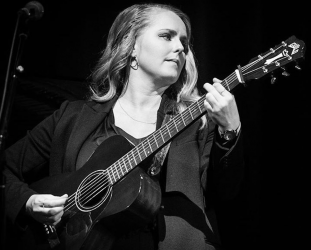
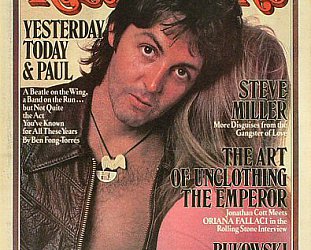
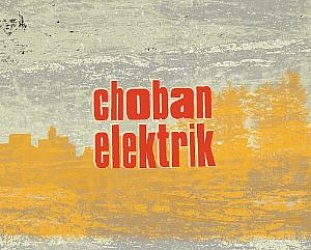
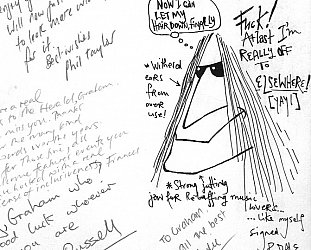
post a comment